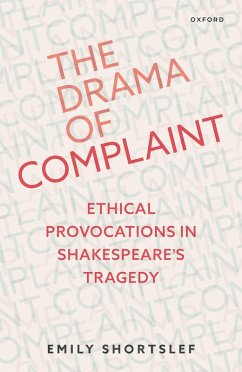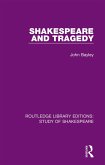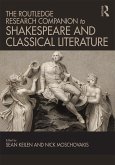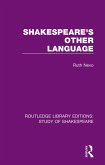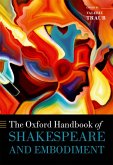The Drama of Complaint: Ethical Provocations in Shakespeare's Tragedy is the first book-length study of complaint in Shakespearean drama. Emily Shortslef makes two main arguments. One is that poetic forms of complaint--expressions of discontent and unhappiness--operate in and across the period's literary and nonliterary discourses as sites of thought about human flourishing, the subject of ethical inquiry. The other is that Shakespearean configurations of these ubiquitous forms in theatrical scenes of complaint model new ways of thinking about ethical subjectivity, or ways of desiring, acting, and living consonant with notions of the good life. The Drama of Complaint develops these interlocking arguments through five chapters that demonstrate the thinking materialized in and through five prolific forms of complaint (existential, judicial, spectral, female, and deathbed). Built around some of the most electrifying scenes in Shakespearean tragedy, each chapter is a case study that identifies and theorizes one of these forms of complaint; delineates a matrix of ethical thought that structures that form; and develops a new reading of a Shakespearean tragedy to which that form of complaint and those ethical questions are integral.
Dieser Download kann aus rechtlichen Gründen nur mit Rechnungsadresse in A, B, BG, CY, CZ, D, DK, EW, E, FIN, F, GR, HR, H, IRL, I, LT, L, LR, M, NL, PL, P, R, S, SLO, SK ausgeliefert werden.

